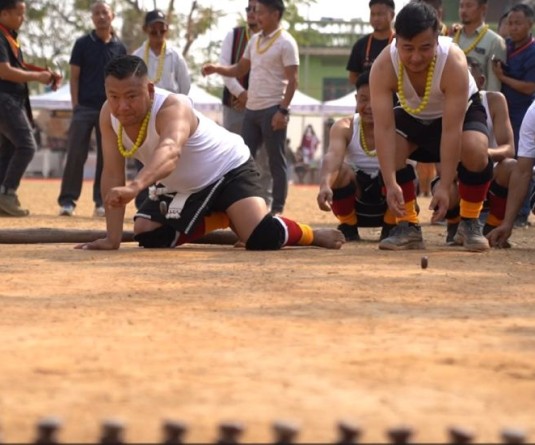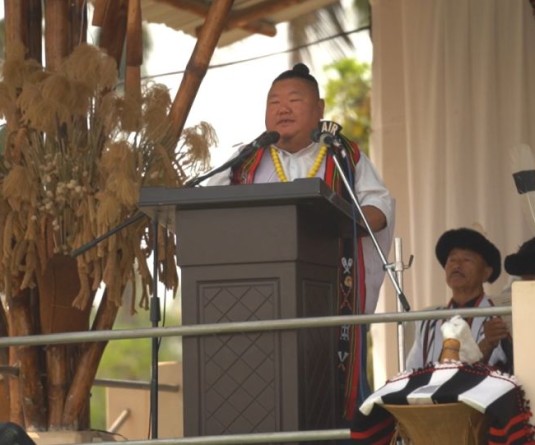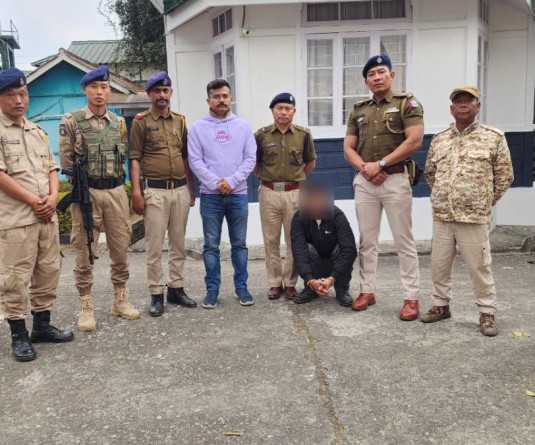
Dimapur, June 28 (MExN): The second phase of Red Ribbon Express will be reaching Dimapur on July 1 and 2. This unique HIV/ AIDS campaign is being implemented by the National Aids Control Organisation (NACO) in partnership with Rajiv Gandhi Foundation as a multi-sectoral project to spread awareness of HIV/AIDS and promote safe behavioural practices. The RRE will reach Dimapur on June 1 at 2: 00 am and will depart on July 2 at 10:00 pm. everyone, can come and visit the train from 9 am to 4 pm on both days after which the train will leave but the campaign will continue through Bus Caravan from July 1 to 6.
Devised with the intent to capture the minds and hearts of people across the country, eight coaches carrying HIV messages will traverse over 27,000 kms making 180 halts, covering 66 Districts across the country reaching out to Crores of people in over 50,000 villages for scaling up ground level activities. The targeted population includes the youth groups, women Self Help Group members, adolescents/students community from schools and colleges, Panchayati Raj Institution members, youth in uniformed services and non/ students youth in the community.
ADC, Dimapur, Sedeviho Kiro in a meet with media personnel stated that he hopes the RRE will help to prevent stigma of HIV/AIDS and reduce discrimination against people living with HIV. “RRE should help reach out to the common people who are not aware”, he said. He also mentioned that the project target of RRE phase two is mainly the youth from rural and semi-urban areas and from the age range of 14 to 49 years. He also hoped to see participation from NCC youths, NSS, and Zila Parishad from district to village level. The Dimapur AD also expressed that participation from not only the general public but also from the policy makers is essential. He said that opinion and interaction by MLA’s, local celebrities in whichever field they excel can also play an active role.
Last year, the first phase of the RRE flagged of on World Aids Day December 1, 2007, from Delhi. The train traveled to 24 states 180 stations over a period of 365 days and 27,000 kms. Signaling the beginning of one of the largest social mobilization campaigns on HIV prevention the train traveled the length and breadth of the country over a period of year, increasing knowledge about HIV transmission, prevention, services encouraging open dialogue and thereby reducing stigma and discrimination. It also led to the creation of effective partnerships between government and non-governmental agencies, donors, and civil society to jointly work towards prevention of HIV. Conceptualized by the Rajiv Gandhi Foundation, the ambitious project was implemented by the National AID Control Organization (NACO) in collaboration with the Ministry of Railways, Ministry of Youth Affairs, Nehru Yuva Kendra Sangathan (NYKS) and United Nations Children’s’ Fund (UNICEF).






